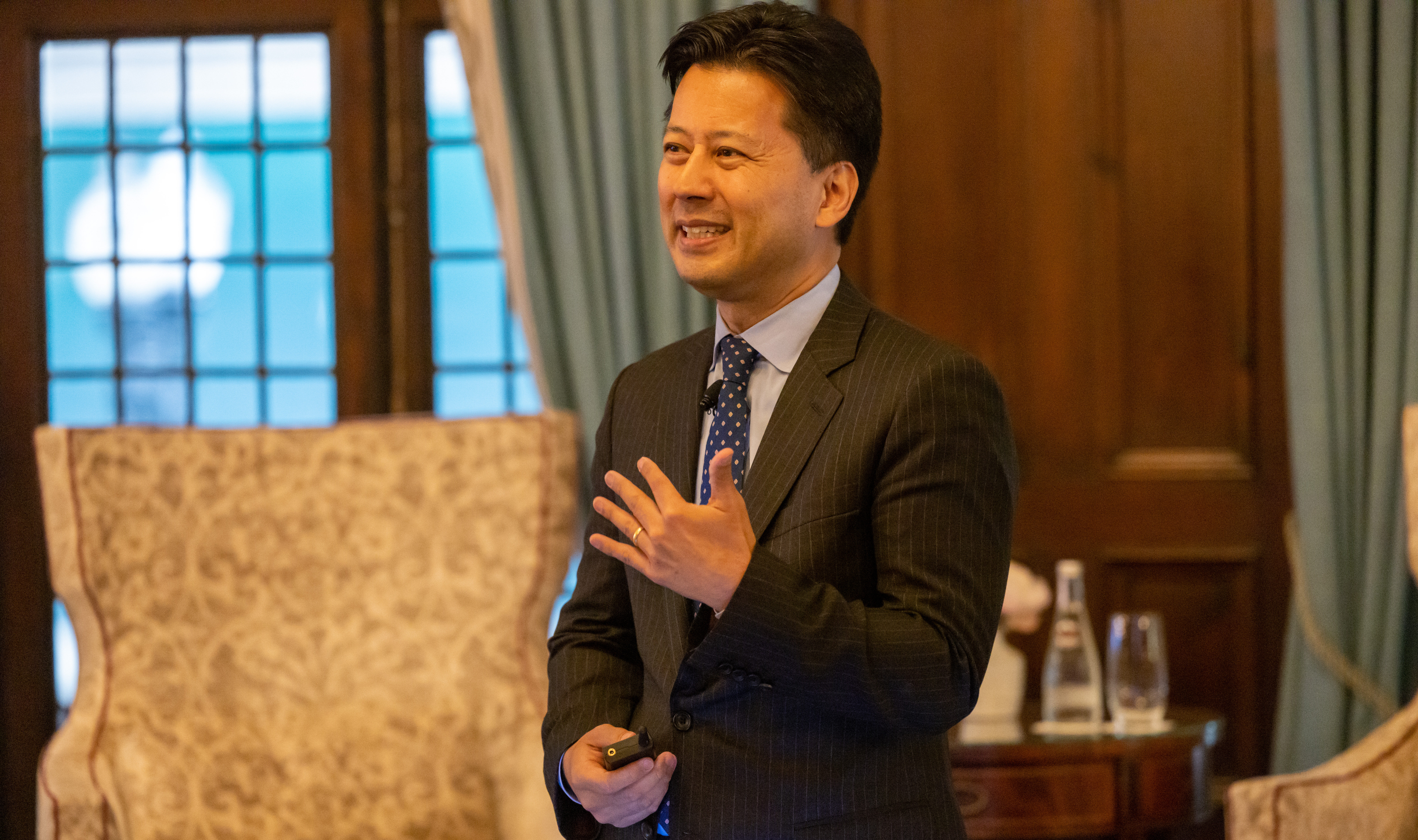
A Q&A with Mark Hacker, Executive Vice President, General Counsel and Chief Administrative Officer
In mid-2016, Motorola Solutions Inc. (MSI) relocated its global headquarters from Schaumburg, Illinois, to Chicago, transitioning approximately 800 employees to a 150,000-square-foot space in the city. Leadership hoped the move would provide better access to critical high-tech talent.
As MSI’s General Counsel and Chief Administrative Officer Mark Hacker discusses in a Q&A with Corporate Leadership Center, the new location delivered on that goal and much more.
What was the rationale behind the decision to relocate MSI’s global headquarters to downtown Chicago?
We’re a 90-year-old company. When we decided to make this move, we were pivoting from a hardware-centric business to more focus on software, services, and video. We recognized that was going to require some different talent and cultural change. So, the rationale behind the move to Chicago was number one attracting talent and number two driving culture change.
We wanted to be surrounded by world-class universities that were producing the high-tech expertise we need, especially around software. We also wanted to be closer to other Fortune 500 companies we could learn from.
The suburbs have served us well and continue to, but when you’re based there you run a risk of becoming a little insular and it’s a bit harder to network with peer companies. By moving to the city we were hoping for more of an “outside-in” perspective.

Mark Hacker
What are the benefits of being in Chicago? Any downsides?
I’ll share a personal example. Since I’ve been in the city I cofounded the Chicago General Counsel Forum, a group of general counsel from companies in the city and suburbs. We meet quarterly to discuss top-of-mind topics. It’s much easier to pull people together when you’re in the city.
Our employees have also leveraged networking opportunities in Chicago, with companies like McDonald’s and Boeing. We attend panel discussions we wouldn’t have from the suburbs. We’ve reached out to companies in the city for best practices and had them reach out to us. We can test our ideas with the outside world more effectively.
From a cultural standpoint, there’s greater energy in the office, more speed. Being around universities like Northwestern, University of Chicago, UIC, Loyola, and DePaul enables a talent refresh and bolder, more cutting-edge perspectives that help us tackle problems in a different way.
Honestly, there have been no downsides. Just that we probably should have done it sooner!
How does being in Chicago affect MSI’s ability to access, recruit, and retain talent?
It’s an absolute game-changer.
In the past, when we recruited engineers, especially Millennials, they loved the Motorola brand and our mission to serve public-safety needs, but didn’t like the commute from Chicago to Schaumburg. We lost great talent because of that.
Being in the city has helped us build a much more robust pipeline because people can continue to live in Chicago. A lot of our younger professionals don’t even own cars, so it’s a big selling factor.
The move also enabled the formation of our Young Professionals Group: our youngest professionals coming together to voice where they want the company to go and to serve as ambassadors for us at universities and with their friends. Moreover, we used to take an ad hoc approach to our internship program. Being here has allowed us to revamp it, and in 2018 we were named among the Top 100 internship programs nationwide—a first.
We can easily bring candidates for any position to our facility, let them tour the innovation center, and show them our collaborative spaces.
Did you risk losing people by moving here? How did you address that?
It was a risk. Many of our people in Schaumburg had never taken a train into the city and didn’t know how to navigate Chicago. Change can be scary.
Several things helped.
Our most important decision was location. We picked a spot that’s a short walk to the Ogilvie or Union train stations.
Second was making clear to teams we’d be flexible around time spent in the office versus working at home. We started to adopt more video and conference calls so people didn’t feel the pressure of commuting every day.
Third, the way we designed the workspace. We now have open, collaborative spaces where people can write on walls; lots of couches and flat-screen TVs; premium coffee; free snacks; food service from different restaurants. That has generated excitement.
The move’s early stress went away as soon as people saw how easy the commute was, and they got really excited about taking advantage of different cultural options in Chicago.

Motorola Solutions’ Corporate Headquarters, Downtown Chicago
How has being in Chicago changed how MSI works with the city or organizations based in it?
We’ve always had a great relationship with Chicago. Motorola Solutions started in Chicago, and our location today is only about two miles away from the original site. So, we’ve come full circle, and being here has only deepened our relationship with the city. People who’ve been around Chicago a long time know Motorola’s history and the great citizen we’ve been. We were welcomed back with open arms.
As I mentioned earlier, being here has also opened up new partnerships, whether relationships with universities or other Fortune 500 firms. Through the Motorola Solutions Foundation, our philanthropic arm, we developed a wonderful relationship with the Society of Women Engineers, which is based in Chicago. Last year, to celebrate our 90th anniversary we donated $90,000 to them, which hits at our mission of giving back to the communities where we work.
What are best practices or takeaways for other companies considering a move to the city?
For one, do it. You can’t attract the best young talent if you require them to commute to the suburbs. That’s going to be very, very difficult going forward.
You also have to overcommunicate about a move like this with your employees. We had a communication plan that included sharing everything from photos of the location to lists of restaurants and cultural events. We also did live town halls where people could ask questions. We did field trips where people could come down, check out the area, see what the train ride is like. You have to give everyone plenty of opportunities to understand and study the change.
Don’t underestimate the human stress involved, especially if you’re a company with long-tenured employees who aren’t familiar with the city.
Any final thoughts?
The relocation to Chicago has had the biggest positive cultural impact on Motorola Solutions of anything we’ve done. It’s that simple.
Interview by Sachin Waikar

